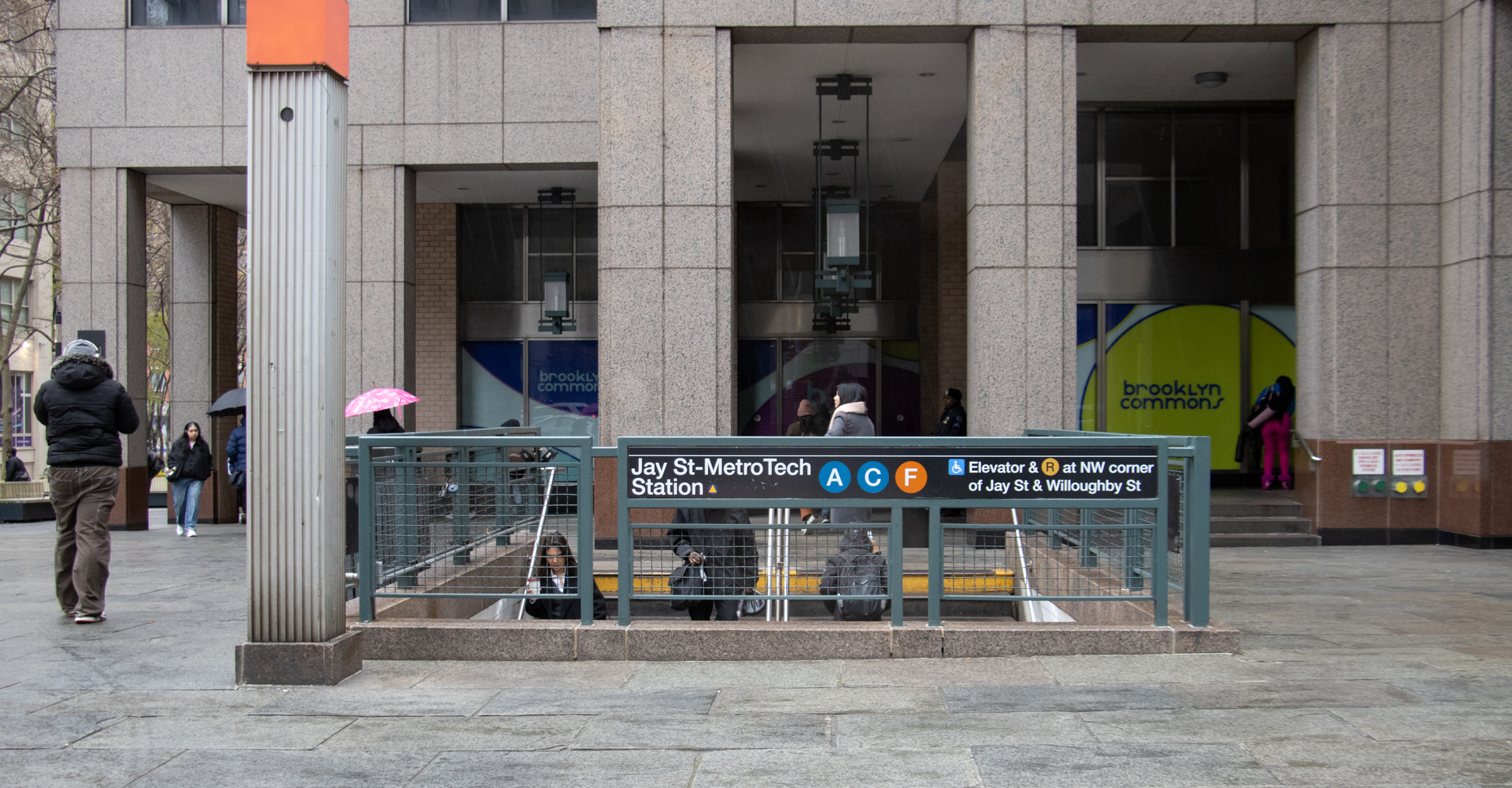Gotham's Supermarket Shortage: A Public Health Crisis?
The city’s recent building boom has had at least one noticeable deleterious effect on a cross-section of New Yorkers, but especially poorer ones: It’s played a large role in supermarkets closing as owners sell out developers, according to an article published a few weeks ago in the Washington Post. (The story zooms in on a…


The city’s recent building boom has had at least one noticeable deleterious effect on a cross-section of New Yorkers, but especially poorer ones: It’s played a large role in supermarkets closing as owners sell out developers, according to an article published a few weeks ago in the Washington Post. (The story zooms in on a Fort Greene woman who now has to drive in order to get to a supermarket after her local mart was sold off to a developer.) There are now one-third fewer supermarkets in the five boroughs than there were six years ago, says retail consulting company F&D Reports. The Bloomberg administration thinks fewer people having access to fresh produce is a public health crisis, and it’s pushing legislation like the Green Cart law to get more fruit-and-vegetable stands into low-income neighborhoods. There’s also a statewide supermarket commission in the works that will try to come up with new ways to lure groceries to underserved communities. A similar strategy has apparently already been tried in Philadelphia, where a nonprofit organization called Food Trust helped attract 32 new supermarkets. The supermarket shortage, of course, also affects residents of new luxury condos. “How are you going to have million-dollar condos if there’s no place to buy bok choy?” Alicia Glen, the managing director of the Goldman Sachs Urban Investment Group.
Groceries Grow Elusive For Many in New York City [Washington Post]
Yes, We Have No Bananas: More Fruit Stands for Brooklyn [Brownstoner]
Photo by janelbot.





where are they going, 9:57?
every person i know with a masters or law school degree wants to be here in new york city. the rest of the country is floundering right now, except a few select cities.
of my graduating class at yale in my department, 87 of the 125 people moved to new york city.
most of the rest moved to either dc, london or boston.
you don’t really know what you’re talking about.
or do you think that all my classmates are transvestites?
New Yorkers I think as a group are the most on edge of any americans, we are more like a third world country, the have and the have nots. It is just the way it is. reasonably successful people move out. it is a big country, leaving behind the poor, the lame-brained, and the folks who have a special reason to live here like certain sects of orthodox Jews, professional transvstities,
anorexic socialite x-rays, advertising barracudas and TV News anchorpeople.
Wake up and smell the coffee, everyone else with half a brain has gotten out of Dodge or is looking frantically to do so.
1. Why should you or anyone else have to subsist on a diet of boxed and canned foods? Why should you or anyone else have to shop in smaller bodegas or markets because businesses refuse to invest in your neighborhood where a larger supermarket would benefit you and yours? Why should you have to pay higher prices because of limited stock? This makes no sense. Particularly in New York City, where there is extreme wealth and abundance. Why defend poverty when there is no need for it? You’re reading brownstoner, for god’s sake, a blog about homes selling for millions of dollars right next door to housing projects. How does that sit with you? If you’ve risen above the poverty line and choose to do nothing but sit back and point fingers at the poor instead of where they squarely belong – at the wealthy, the empowered, those able to affect change from the top down instead of the other way around – then the system has worked it’s magic on your mind.
I personally know of someone who worked for the mayor’s office until July of this past year who quit their job after a meeting wherein Bloomberg stated, flatly, “I think the goal here is to ensure that the minimum income necessary to live on the island of Manhattan is $100,000 or more.” If an asshole like that is willing to admit there’s a problem with the number of supermarkets in this city – if only as a sop to his own personal vanity, given that he’s an anti-smoking, let’s all lower our cholesterol numbers and take up jogging health-enthusiast – then, fine by me. Whatever it takes to make sure your mother or mine can by an apple for less a dollar.
2. I worked for Meals on Wheels in New Orleans – where I grew up, in poverty, in New Orleans East, in a neighborhood which is now a pile of moldering rubble, thanks – and in Chicago where I, too, got educated, and I now live here, in Brooklyn, well above the poverty line. We lived on foodstamps and public assistance more than once. If your own mother and grandmother have gotten healthy food from meals on wheels, congratulations. You’re lucky. The system has come a long way – it’s probably due to volunteers and private purveyors in your neighborhood who care that people in need have access to quality food. Why? Because all the labor is outsourced to local providers who understand and care about the concept of community, that’s why. That aside, the larger question and, indeed, the point of this post is what if your mother could simply walk two blocks to a well-maintained, competitively priced supermarket with abundant, quality food? What if that was the standard and not a luxury? That your mother and grandmother are the very people many of the wealthiest in this city think are the problem, that they should be viewed as a blight on the landscape, that they should be denied any choice whatsoever in feeding themselves should enrage you. That it does not enrages me. I’ve lived through poverty and need. I watched my own parents choose between allowing my brother and me a meal and putting a gallon of gas in the car so my mother could get to the work. Oh, and my father? Unemployable, thanks to clinical depression and substance abuse.
3. The key word in my argument is “quality” free nursing home care. And, again, welcome to our wonderful system of keeping the poor impoverished and without choice. Medicaid sucks – something I’m well aware of because I’ve walked some pretty destitute cases through the legal system. You begrudge those on Medicaid their “free” medical warehousing – oops, I mean, housing? Well, you’ll be happy to know most people on Medicaid get to wade through the bureaucracy of private drug companies subsidized by the government when they need an appropriate dosage of their 11 different medications on a given day while living in a firetrap of a nursing home run by a convicted felon. And, by the way, don’t worry about the drain on the workforce or, I’m assuming, your hard earned tax dollars – if someone like your mother or grandmother or me or you have a single cent to our names upon our death, within the medicaid system, a nice little lien will be placed on our estate the moment we pass away. So forget passing along in paltry amount of money we may have managed to save for future generations – a major component of how people rise out of the poverty wheel, education and luck notwithstanding. But go ahead and keep thinking it’s your bootstraps that are stronger than most.
“Entitlements for free”? Hardly. We’re talking about food. We have loads of it – we’re one of the richest cities in the richest country in the world. And if you’d like to learn a little about why many of the impoverished in this country become a burden on the health system – “entitlements for free”, though I’m sure you’d like you’re own family to be above this label, Meals on Wheels nothwithstanding – do a little research on how a crap diet contributes to diabetes, heart disease, arteriosclerosis, morbid obesity and other ailments preventable through preemptive proper nutrition. And pick up a little book called Class Matters, any book by Jonathan Kozol, or the work of Ruby Payne.
And that, and those, are facts.
2:07 here, responding to 5:08 and 5:14.
#1
My wife shops for our family from time to time at that market I referenced. She said it’s not spit shine clean and could be better, but it is perfectly acceptable. Also I have lived in NYC all my life and have relied on many bodegas and smaller markets for my food needs. Most foods are in boxes or cans – who cares if there are 10 aisles or 40 aisles. And yes, they sell ok produce – but there are plenty of places on Dekalb for that. God forbid someone has to walk to the other side of the park for some lettuce.
#2
Both my mother and my grandmother were on meals on wheels from time to time (including within the last year). They both said that the food was a little bland, but healthy and fresh. They did not indicate that the food was anything as you described. I doubt you have a clue about what you are talking about.
My hostility for the PJs arises from the attitude that somehow they are being forced out or protecting “their” neighborhood. But there are two problems with that concept: (1) every NYC neighborhood changes its socio/ethnic character; and (2) the PJs are PUBLIC, so they should not be the domain of a limited group of people who could improve their lives if they were in the habit of getting off their butt and taking care of their own problems.
No one has a “right” to be here. I was pushed out of my childhood neighborhood, but have worked hard and now make enough money to support my family. It’s people like you who preach entitlements as a way of life that are breaking the back of the American work force. Since when is everything supposed to be free for those who provide the smallest benefit to society?
#3
“And please tell me about free quality group and nursing home care for weak, life-long residents of New York who have the gaul to want to live out their lives here.”
New York State pays for 100% of nursing home care for people on Medicaid (both in home and in a facility). Rich people pay lawyers tens of thousands of dollars to put their assets in trust so they don’t have to pay up. If you are broke to begin with – then you don’t need a lawyer. Ta-da!
Now, since I have demonstrated that I know what I am talking about, why dont you put some real facts behind your weak @ss “logic”.
if i were in financial ruin or close to it, the last place i would be living would be new york city.
i’d find myself a nice place in west virginia.
Most people in this country are one bad car accident away from financial ruin. Unless your last name is Bloomberg, Rockefeller or Bush, you shouldn’t be so comfortable and full of yourselves.
regarding 12:41: wow! as a ft. greene resident I had no idea the average income is 25K a year. given how expensive the neighborhood has become i would never have thought that. i feel quite good now being above the average. wohooo!
Let’s hope your luck never runs out, 5:14. Or your mother’s or child’s. Let’s also hope you or yours never finds themselves facing a catastrophic injury or illness, treatment for which goes over your insurance cap and exhausts your ample savings. And please tell me about free quality group and nursing home care for weak, life-long residents of New York who have the gaul to want to live out their lives here.
i thought it was called survival of the fittest, 5:08.
if someone is so bad off like you describe, perhaps they don’t belong in new york city.
the person you just described sounds better suited for a group or nursing home.